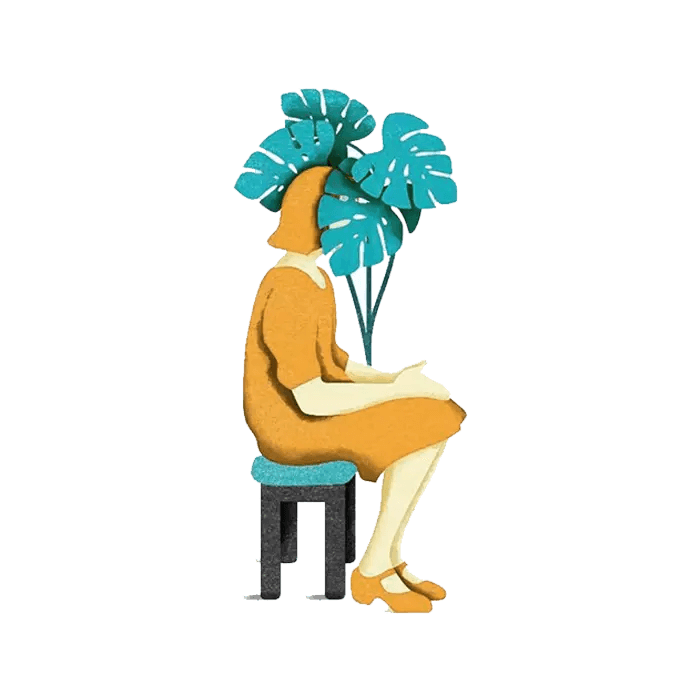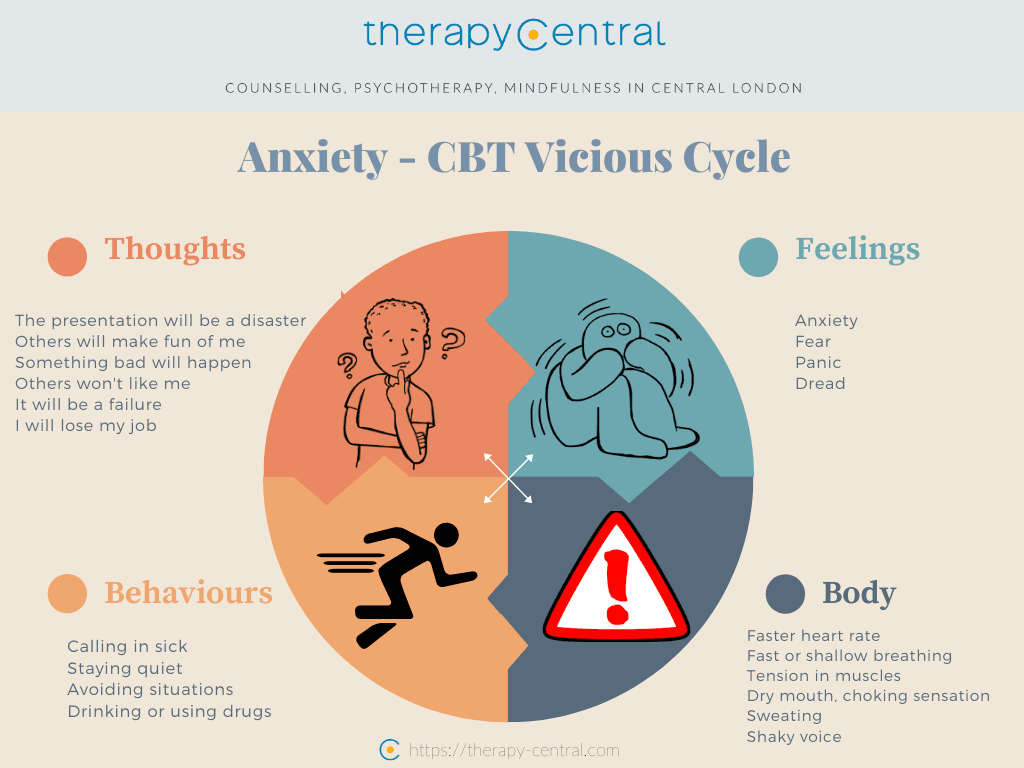Experiencing a traumatic event can lead to a very challenging time. It can have consequences which are not always immediately visible, but that can derive in serious mental and emotional issues later on, such as PTSD. PTSD (Post-Traumatic Stress Disorder) can be a very debilitating anxiety-based distress. Nightmares, intrusive thoughts and images and difficulties managing emotions can lead to a disorienting and disrupted existence. Developing PTSD can be the normal response to the exceptional circumstances of experiencing a trauma. However, should be tackled as soon as possible with the help of a trained PTSD, Trauma Therapist. It might be important to seek Trauma and PTSD counselling as with the help of a trained clinician using an evidence-based therapy approach for Trauma you have the opportunity to break negative patterns, improve your sense of agency and control and stop the vicious cycle of fear and anxiety that keeps you stuck. Beat Trauma and PTSD with Therapy Central in London starting today. Read on to learn more about PTSD and Trauma therapy and click here to get in touch with us for a free 15 min consultation with a Trauma therapist in London.

Trauma usually impacts an individual’s mental and emotional stability, following a distressing or life-threatening event. Trauma is a normal reaction to an extraordinary event and people often experience shock or denial which can fade naturally with time.
A person may undergo a range of emotional reactions, such as fear, anger, guilt, shame, feelings of helplessness and vulnerability. In these cases, help may be needed to overcome the stress and dysfunction caused by the traumatic event and to restore the individual to a state of emotional well-being. They may have ongoing problems with sleep or physical pain, trouble with their personal and professional relationships, and issues with low self-esteem. For those who have existing mental health problems, events like these could trigger them or make them harder to deal with.
While many sources of trauma are physically violent in nature, others are psychological. Some common sources of trauma include:
Post-Traumatic Stress Disorder (PTSD) can occur following a severely traumatic incident, or a series of less severe incidents. In this sense, PTSD can occur as a reaction to experiencing a trauma. PTSD is known as an anxiety-based disorder, and thus it shares similarities with other anxiety issues, such as OCD (Obsessive-Compulsive Disorder), Panic Disorder and Social and Health Anxiety.
Some of the the main symptoms of PTSD are:
Complex PTSD is a more complicated version of PTSD, at times confused for a personality disorder, which can be experienced as a result of repeated childhood traumas. cPTSD is often more severe if the trauma was experienced early in life as this can affect a child’s development. Complex PTSD can cause similar symptoms to PTSD and may not develop until years after the event. If you feel you might have cPTSD get in touch with us to discuss starting a course of trauma therapy in London. Symptoms of cPTSD (in addition to the classic PTSD symptoms highlighted above) include:
PTSD develops because the experience of trauma was so distressing that we want to avoid any reminder of it. Our brains don’t process the experience into a memory, so the experience becomes ‘stuck’ as a current problem instead of becoming a memory of a past event. Each time we are reminded of the event (i.e. people, places or smells), the ‘flashbacks’ mean we experience the trauma again, as though it is happening again, right now. A flashback is a vivid experience which can sometimes be like watching a video of what happened; noticing sounds, smells, physical sensations or tastes connected to the trauma; experiencing emotions that you felt during the trauma. It can last for just a few seconds or continue for several hours. As this is very distressing, we do our utmost to stop the flashback, and avoid any further reminder of the event, so the event remains un-processed.
We try to avoid all the situations, people, places and even thoughts, which are likely to distress us. This avoidance helps prevent us becoming distressed in the short-term, but it is one of the main factors which keep the problem going in the long term. Avoidance also interferes greatly with our everyday lives as our lives become very restricted. Because we become upset and avoid thinking about the trauma, the brain has not been able to process and file the memory away, so any trigger tricks the brain into thinking the event is happening again, right now, and we re-experience all the feelings and sensations as though it really was happening right now.
The symptoms of PTSD can be extremely difficult to deal with and the effects can become so severe that they interfere with an individual’s ability to live a normal life. It can be hard to maintain relationships, to work, enjoy leisure time, carrying out simple everyday tasks, remembering things and making decisions. Sometimes it can go unnoticed and this highlights the importance of talking to someone after a traumatic event has occurred, even if no initial signs of disturbance are shown. Trauma can manifest days, months or even years after the actual event. If you feel that you have experienced a potentially traumatic event, or notice early signs of PTSD, like the ones highlighted above, it is important to act quickly to prevent PTSD from disrupting your everyday life. Simply asking yourself whether your habits, relationships, work situation or leisure time activities have changed, can give you an idea of whether there might be an issue to address with a trained PTSD therapist.
If you are look for PTSD & Trauma therapy in Central London, contact Therapy Central where one of our experienced PTSD therapists can offer the help you need.
The short answer is yes. Two main therapeutic approaches have shown to be consistently helpful in addressing PTSD. These are Trauma-Focussed Cognitive-Behavioural Therapy (TF-CBT) and Eye Movement Desensitisation and Reprocessing (EMDR) [1]. We will discuss both in detail in the next section.
Both approaches have been evidenced to reduce the impact of trauma in an individual and how they perceive and react to their memories over time. People going through a course of TF-CBT or EMDR often describe themselves as not becoming overwhelmed or as strongly affected by their traumatic memories.
It may be a preference of the individual or a collaborative decision between client and the trauma therapist which model is used within therapy and feels the best fit for you. Both CBT for trauma and EMDR can last around 12 sessions, but depending on the individual and complexity of trauma, this could vary.
Many of our PTSD therapists have experience in both models and are receiving ongoing supervision to ensure safe and ethical application. At Therapy Central, we provide a safe and confidential space to explore and develop coping strategies for the intense physiological symptoms described above, as well as nightmares, flashbacks, panic attacks, and anxiety related to trauma. Your PTSD therapist will help you to learn effective ways to manage stressful or triggering situations to help you manage going forward. We hope that management of symptoms alongside other components of your life will leave you with a sense of confidence, safety and control over your ability to deal with challenges in the future.
TF-CBT begins by helping you to understand the brain and bodily responses that help maintain the memories after traumatic experiences. It can help you to identify the factors that help maintain PTSD symptoms such as misrepresented thought patterns about the experience, which may be resulting in self-blame and feeling unsafe. You are guided in learning to replace these with more accurate and realistic ones which will help you to cope better with future triggers as well as promoting more positive beliefs about the self.
Our experienced London-based Trauma & PTSD therapists at Therapy Central will help you to think about or imagine the traumatic event in a safe, non-judgemental environment, and we can begin to gradually expose you to those situations that trigger a reminder of the event through elaboration and processing of the memories. This will encourage our brain to process the traumatic event into a memory, filing it away in the appropriate part of the brain, so that it becomes a past event, rather than constantly reliving the trauma as though it is happening right now. Part of this will be to look at situations that are currently being avoided and to begin challenging these behaviours. Symptoms such as nightmares and flashbacks are sensitively managed by developing bespoke coping strategies to deal with them.
Inevitably, thinking and talking about the trauma may bring up difficult emotions and memories, but we know from experience that it can help to reduce the overall distress and encourage resolution of the problem. During the entire process, your therapist will support you in navigating any distress that comes up. We also acknowledge that trauma-focused work is not for everyone and every effort will be made to create an environment where you can control what direction the trauma therapy takes. This could involve talking about and managing the depression and anxiety that may be experienced as a result of the traumatic experience.
In your therapy sessions for PTSD, your trauma therapist can also work with you to explore the vicious cycles you may be currently experiencing and help you find ways to break out of these cycles. This is often the case with CBT (Cognitive Behavioural Therapy). See an example of a CBT vicious Cycle of PTSD below).

Eye Movement Desensitisation and Reprocessing (EMDR) is another approach recommended by the NICE guidelines. Its aim is to help “desensitise the person to the emotional impact of the memory” (EMDR UK and Ireland) in order to reduce the intense feelings experienced. This is achieved by recalling the event whilst moving the eyes from side-to-side and following the therapist’s finger, hearing a sound in alternating ears or by tapping alternating hands whilst targeting specific memories to a point where the memory is no longer distressing.
EMDR is delivered in phases. Like TF-CBT, the therapist will help you to understand our reactions to trauma and help to manage the current distressing day to day symptoms such as flashbacks using relaxation and other techniques, before identifying and targeting specific memories through its unique method.
It can be easier to speak with a trained PTSD therapist as opposed to a friend or relative. At Therapy Central we have experienced counsellors, psychologists and therapists specialised in treating PTSD and trauma work who will actively listen to you. They will provide a comfortable, warm and non-judgmental space for you to explore and manage your symptoms. A course of PTSD and Trauma therapy in London with a trained clinician will enable short and long term benefits, such as:

Get professional help with PTSD in London today. Contact us for a free 15 min consultation with a PTSD Therapist to see if our help would fit your needs. You can also get in touch via email at info@therapy-central.com or call us at (+44) 020 348 82797.
Our comfortable and confidential therapy rooms are the ideal surrounding for Trauma therapy in London, conveniently located 3 min walk from Oxford Circus station, in Central London (see map below). Change starts with Talking!
Learn more:
Other issues we work with at Therapy Central
Mind (UK Mental Health charity)
Learn more about how CBT works
Image Credits:
Dr Raffaello Antonino, Clinical Director, Counselling Psychologist
Dr Sheetal Dandgey, Clinical Director, Counselling Psychologist
References:[1] Bradley, R., Greene, J., Russ, E., Dutra, L., & Westen, D. (2005). A multidimensional meta-analysis of psychotherapy for PTSD. American journal of Psychiatry, 162(2), 214-227.